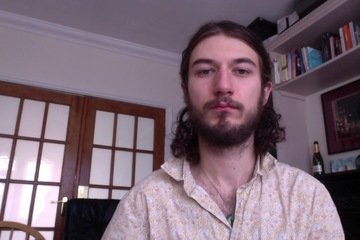Proposed Temple University Football Stadium Ignites Controversy

Architectural Rendering of Proposed Stadium/source:https://247sports.com/college/temple/Board/104514/Contents/Stadium-Rendering-54733261
Temple University is located right in the heart of the vibrant community of North Philadelphia, but as Temple continues to expand and grow without consideration for area residents and their concerns tension has continued to grow between the university and the community. Nothing illustrates this tension more than the proposed football stadium that the university plans to construct against the wishes of the community, students, faculty, and local politicians.
Temple University’s American Conference football team currently plays at Lincoln Financial Field, home of the Super Bowl Champion Philadelphia Eagles. However, Temple’s contract with Lincoln Financial Field expires this year, and if Temple were to renew the contract, the rent paid by the university to the stadium would triple from 1 million dollars to 3 million dollars. These financial obstacles, as well as a growing student population and desire to increase attention on university athletics, have led to the University deciding to build a huge football stadium in the mostly residential North Philadelphia neighborhood where Temple is located.
The 35,000-seat stadium would be built on land already owned by the University, and according to Temple, no residents would be displaced, although completion of the stadium would mean that the busy thoroughfare of 15th street would be blocked off. Throughout the day this street is often used by over 325 vehicles in an hour, meaning that this could cause a significant disruption to the flow of traffic in the area.
The University contends that any disruption would be minimal, as the stadium would only be used during the six home games that take place during Temple’s football season, but this also seems to beg the question of whether it is necessary to build an entire stadium complex against the wishes of the community solely to stage six events a year.

Protesters during a rally at Temple University/source: https://temple-news.com/community-members-students-strongly-oppose-stadium-funding/
Residents of the area have been opposed to the stadium since it was first proposed, and groups such as the Stadium Stompers were quickly organized have been on the front lines of the fight to stop construction of the stadium since day one. They have been aided in their fight by a variety of established groups, including the Philadelphia chapter of the NAACP and many student and faculty organizations affiliated with the university, including the Temple Association of University Professionals (TAUP). These organizations have been involved in mobilization of protesters at marches both in North Philadelphia and in the center of the city, and have continued to raise awareness and ignite debate regarding the consequences of the new stadium and the motives of the university.
Among the numerous concerns that area residents have raised is the threat of intoxicated college-age football fans acting rowdy and causing destruction to private and public property. Temple contends that drunk and disorderly students will not be a problem as the University plans to flood the stadium and surrounding area with Pennsylvania State Police Bureau of Liquor Control Enforcement (BLCE) agents during all home games, a practice already employed by Temple for sporting events and other special occasions. In fact, Temple University already spends over 85,000 dollars every year to pay for extra undercover cops to infiltrate Temple events every year, a number that will most likely continue to increase.
Bill Bergman, Temple’s Vice President of Public Affairs, stated that “Every game, we’d have an agreement with the state police to flood the area with agents.”
Not only will area residents now be facing the threat of noise, disorderly students, and disrupted traffic, they will also have to contend with a massive influx of law enforcement officers moving into their community.
“Temple police already patrol the area, and throughout the year we bring in outside officers to assist in shutting down parties that get out of control or arresting individuals engaged in underage drinking. Provided that this continues to provide an adequate response to these issues, there wouldn’t be any reason to increase the number of outside agents in the area or the frequency of their visits. We would obviously be in communication with residents before making any changes in policy,” says Ray Bentzner, Temple’s Vice President of Strategic Marketing and communications. However, given that that one of the major concerns being voiced by the community is lack of communication and outreach it remains to be seen whether this will actually be the case.
Groups such as the Stadium Stompers have a strong ally in Philadelphia City Council President Darrel Clarke, who has been a vocal opponent of the project, even going so far as to write an editorial expressing his views regarding the stadium. Clarke urged “university leadership to put the brakes on its stadium campaign and address this crisis of confidence within the community... There is still time to rectify past missteps in building strong relations with near residents, and that – not a stadium – should now be the university’s priority.”
Unfortunately for Temple, unless they can win Clarke over to their side they will not be able to follow through with their plans for construction, as approval for the project requires the approval of City Council.


















0.5
Parking?